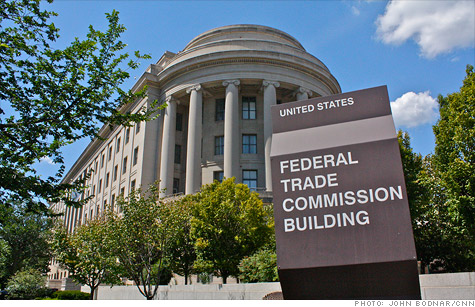While the U.S. Federal Trade Commission (FTC) has long provided valuable oversight and consumer protection, there is an opportunity for Congress to modernize the agency so that it better protects consumers from harm while minimizing regulatory costs and better enabling robust innovation in the U.S. economy.
That was part of testimony given Tuesday before the U.S. House Energy and Commerce Subcommittee on Commerce, Manufacturing, and Trade by Daniel Castro, vice president of the Information Technology and Innovation Foundation (ITIF), a leading tech policy think tank.
“The FTC plays a critical role in protecting consumers and ensuring competition in many areas of the U.S. economy,” Castro added. “But Congress has an opportunity to modernize an institution that is more than 100 years old so that it can better pursue its mission of protecting consumers from unfair and deceptive business practices without imposing unnecessary restrictions on the private sector or limiting innovation in today’s digital economy.”
He also noted, “The FTC’s actions send important signals to the private sector about how it should allocate its resources. In theory, these signals should be encouraging businesses to take actions that protect consumers, while not discouraging them from taking risks that might produce innovation that will benefit consumers. But if the FTC brings enforcement actions against a company that makes an insignificant mistake where there was no evidence of actual consumer harm, it is signaling that companies should direct limited resources away from innovative activities toward corporate lawyers instead.”
Castro outlined actions Congress can take to make the FTC more innovation friendly and reduce unnecessary regulatory costs:
- Limit FTC enforcement to cases where there is concrete consumer harm;
- Require the FTC to use fair and consistent processes for rulemaking;
- Require the FTC to be more transparent about it priorities and investigations;
- Require the FTC to prioritize actions that result in actual consumer harm, including by requiring economic analyses; and
- Avoid lengthy investigations and consent decrees.
Castro also proposed policies that would give the FTC additional authority to protect consumer interests:
- Authorize the FTC to take action against companies that use non-disparagement clauses to unfairly silence consumers;
- Eliminate the common carrier exemption in the FTC Act; and
- Give the FTC authority to hold informal bipartisan meetings without triggering complex open meeting requirements.
“The FTC, through the leadership and dedication of its commissioners and staff, has achieved some important successes in recent years,” said Castro. “But Congress should seize this opportunity to ensure that success continues in the 21st century. Lawmakers should enable the FTC to provide the necessary oversight to protect consumers while at the same time encouraging innovation in the digital economy.”
Thanks for reading CPA Practice Advisor!
Subscribe Already registered? Log In
Need more information? Read the FAQs
Tags: Income Taxes




